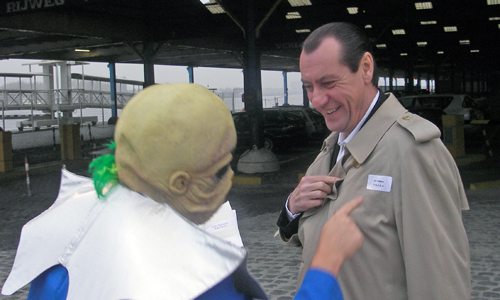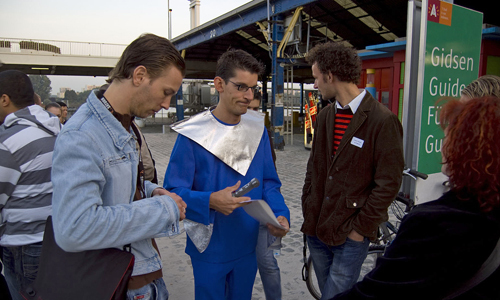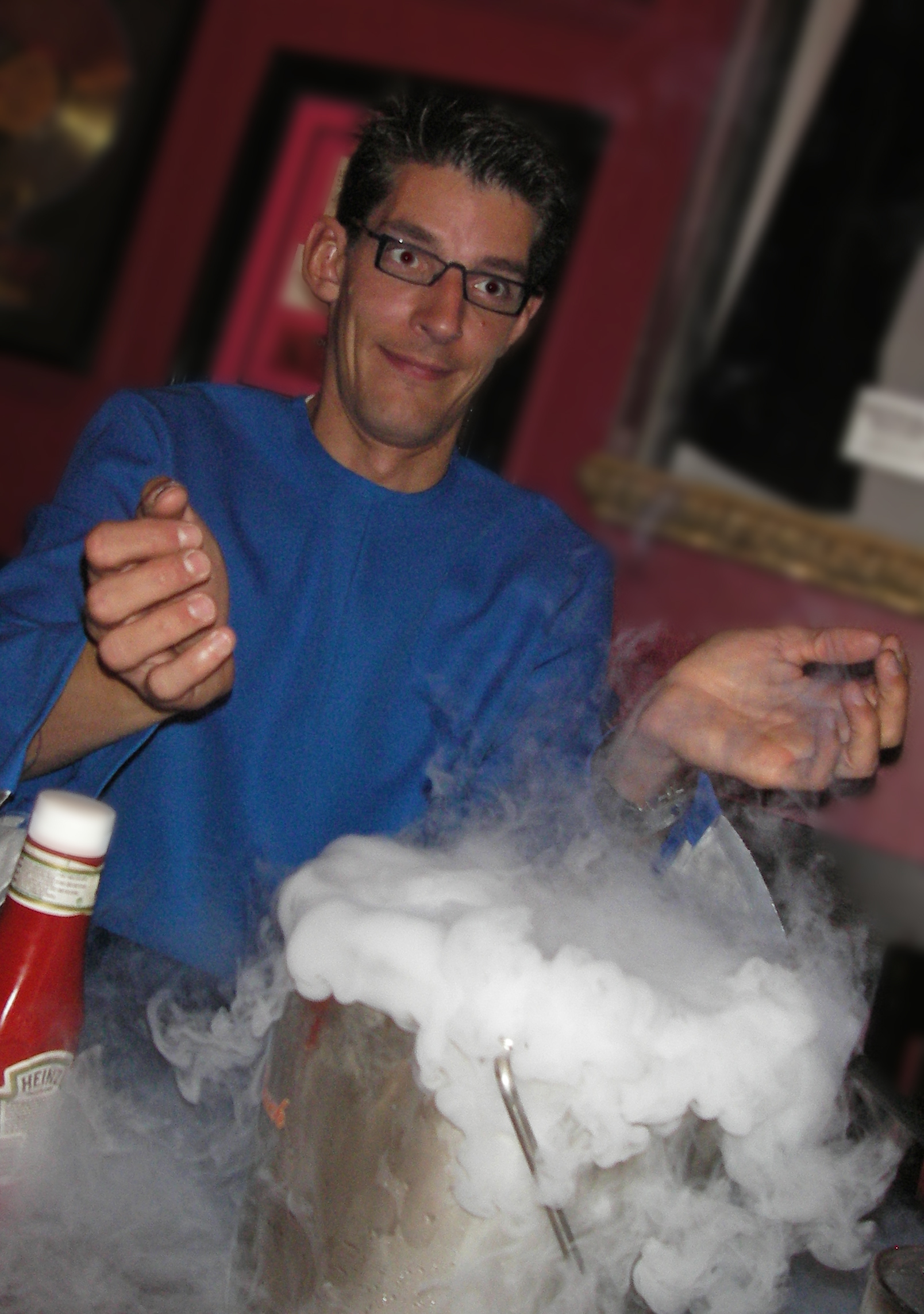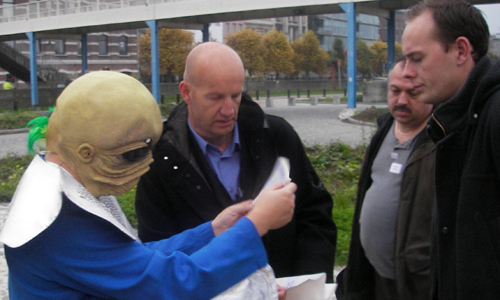Dynamo often uses actors during training, feedback centres, events, kick-offs, simulation training or films.
Dynamo has already made several company training films using actors. We developed a recording format based on improvisation in order to make a film that is recognisably professional but also affordable. These films are funny and at the same time a rich learning resource. A film can be used during training but can also be viewed as preparation. In addition it can be sent to participants as an invitation that makes them enthusiastic for this training or, sent after the training, to refresh what has been learnt.
You can judge our films for yourself; look at a few films of an intervention. These films were shown during a change-day. The company had to go through a merger and this day (and film) spoke into the emotions in the workplace.
During a scheduled event or business day we may also use actors. One example was when we helped employees of Saturn on an educational bus trip. Saturn was due to open their two shops in Antwerp they organised an event to visit some Saturn shops in Germany. We did this with two actors who gave information and entertained the participants during the bus ride. The trip was not only informative but also great fun. Thanks to team building games and speed dating on the bus the new employees also got to know each other better.
 |  |
 |  |
Your organisation or project is at the crossroads of development. Working together, effectiveness, trust and willingness to learn are crucial to support the development.
Sometimes, however, opposite points of view systematically block the development process. New ideas meet resistance, and the decision-making process seems to get stuck in the same mould. A systemic approach helps to release tensions and opens the way to decisions and actions for the best possible impact on your organisation and its stakeholders.
Theatre offers in a visual, experience-oriented way insight into often unconscious dynamics that take place within an organisation or a project when there is a process of change happening. At the same time, theatre can make new possibilities apparent. We provide a facilitator, a game coach and actors. The client provides the audience and one or more questioners. The audience is a diverse group, connected to the question under consideration. The questioner from his own position brings an important common question to the organisation (or the project). The facilitator invites him/her to explain his/her view on the subject. The audience is also able to clarify and expand on the theme. This broader and deeper conversation forms the starting point of a ‘proposal’.